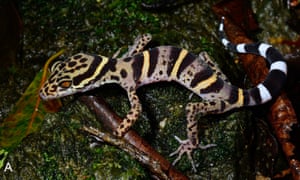Polecats, which were almost wiped out in Britain in the last century, have made a remarkable comeback, conservationists say.
The results of a nationwide survey reveal that the animals are spreading into areas where they have not been seen for 100 years.
The research was carried out by the Vincent Wildlife Trust.
Lizzie Croose, who led the survey, said: "It's brilliant, it's a real conservation success story."
She added: "This is something we really need to celebrate, the recovery of a native carnivore that we once almost lost completely."
Naturalist and BBC presenter Chris Packham added: "It's one of the great natural recoveries.read more and see video-"http://www.bbc.co.uk/news/science-environment-35386042

 Academic journals have begun withholding the geographical locations of newly discovered species after poachers used the information in peer-reviewed papers to collect previously unknown lizards, frogs and snakes from the wild, the Guardian has learned.
In an age of extinctions, scientists usually love to trumpet the discovery of new species, revealing biological and geographical data that sheds new light on the mysteries of evolution.
But earlier this year, an announcement in the Zootaxa academic journal that two new species of large gecko had been found in southern China contained a strange omission: the species’ whereabouts.
“Due to the popularity of this genus as novelty pets, and recurring cases of scientific descriptions driving herpetofauna to near-extinction by commercial collectors, we do not disclose the collecting localities of these restricted-range
Academic journals have begun withholding the geographical locations of newly discovered species after poachers used the information in peer-reviewed papers to collect previously unknown lizards, frogs and snakes from the wild, the Guardian has learned.
In an age of extinctions, scientists usually love to trumpet the discovery of new species, revealing biological and geographical data that sheds new light on the mysteries of evolution.
But earlier this year, an announcement in the Zootaxa academic journal that two new species of large gecko had been found in southern China contained a strange omission: the species’ whereabouts.
“Due to the popularity of this genus as novelty pets, and recurring cases of scientific descriptions driving herpetofauna to near-extinction by commercial collectors, we do not disclose the collecting localities of these restricted-range